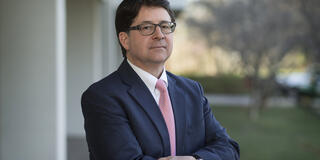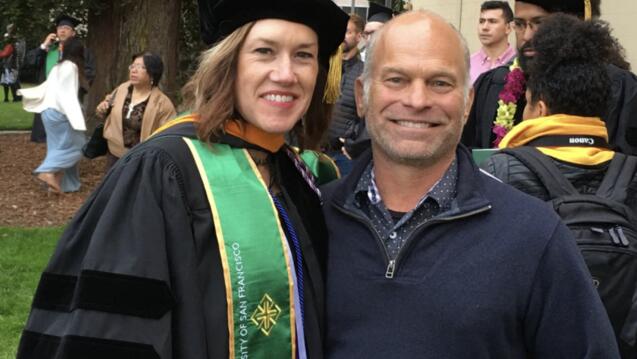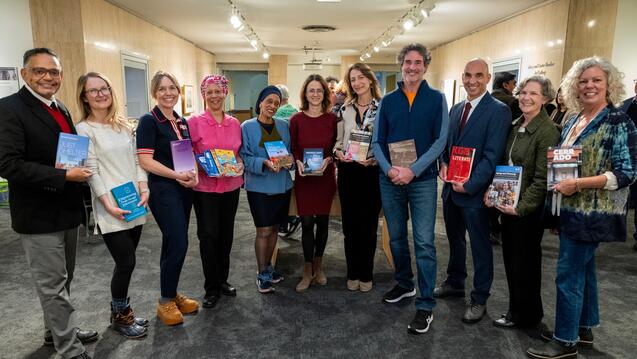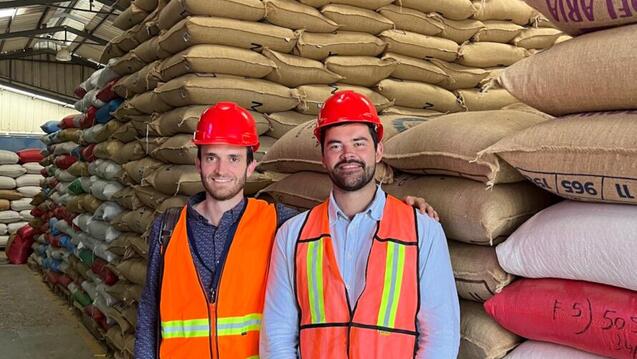Dean Strang of “Making a Murderer” to Teach at USF School of Law This Fall

USF School of Law recently announced that Dean Strang, a criminal defense attorney who rose to national prominence after his client Steven Avery’s case was made into the docu-series “Making a Murderer,” will join the faculty as a visiting criminal law professor for the 2019-2020 school year.
He will teach 1Ls and upper level students Criminal Law, Criminal Procedure, and a seminar in law, social sciences, and the humanities. Strang’s 30-plus years of experience in the courtroom honed his ideas about how justice should be administered, and he shared his thoughts with USF News below.
Why did you choose USF School of Law?
Well, San Francisco’s attractions are obvious. Plus, both Richard Leo and Lara Bazelon are on the USF Law faculty. I admire both of them and have for years. For even longer, too, I have admired the Jesuit commitment to education.
Can you discuss the Center for Integrity in Forensic Sciences, the nonprofit you cofounded with Keith Findley and Jerry Buting?
CIFS was Prof. Keith Findley’s idea originally. The center is the first nonprofit in the United States devoted exclusively to education and structural changes that will improve the objectivity and reliability of forensic analysis, and we intend to strengthen the objective scientific ethos of forensic analysis in the criminal justice system. People who are interested can visit the website, and then go from there.
What areas of the criminal justice system do you think are most in need of reform, and do you have specific ideas about what those changes would be?
In my view, we need to bring police interview processes into the 21st century, or at least into the second half of the 20th century. Confrontational interview methods plainly present unacceptable and unnecessary risks of producing false or unreliable confessions. These undermine public confidence both in the honesty and fairness of the police, and in the reliability of the criminal justice system itself. There are many other areas of necessary reform, of course: reclaiming the goal of saving kids, rather than abandoning them, in our juvenile justice system; lowering the finality barrier to new evidence and testing that reveal unsound convictions; and more.
You have said that humility is lacking in criminal justice, and that ego can compromise the system. That’s a very Jesuit viewpoint, the idea of limiting the ego for the greater good of the whole. How do you incorporate this philosophy into your teaching?
Radically, in a sense: I believe that teaching is impossible; only learning is possible, and that is infinitely possible. The job of the “teacher,” then, is to learn something well, embrace what is essential and exciting about what he or she has learned, and then do everything possible to share that enthusiasm and passion with students as together both teacher and student continue to learn and question. The humility is in the shared venture, the work of discovery together.
How does your 30+ years of courtroom experience inform your teaching? Do you often find yourself using specific examples from cases you’ve defended to humanize criminal law concepts?
Law is human stuff, in application at very least. Indeed, I go further: as vitally important as the social sciences are in offering interdisciplinary insight into the study of law, I believe that law in the end belongs to the humanities. One cannot understand the actual effects of law on human beings — what law gets right and what it gets terribly wrong, what it should attempt and what it should not attempt, what justice and injustice might really mean and how people experience injustice — without being a student of human beings and of humanity itself. As I wrote at the very end of my new book, the rule of law is essential, yes; but law without justice is only rule, and oppression waits there also. I believe that. And I believe that justice is and must be the pursuit of the humane.


